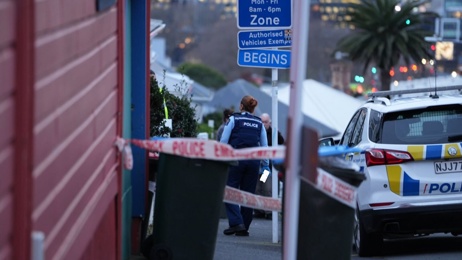They called her the Tooth Fairy of Kaikohe. Claire Wihongi-Matene made and repaired dentures at cut-price cost for those who live in the poor community but doing so without a licence was against the law. Today she was sentenced and fined after four years in court.
The “tooth fairy” of Kaikohe has been fined $7000 for making and repairing dentures she says brought “life-changing smiles” to people who would never have been able to afford the work in the approved system.
Claire Wihongi-Matene of Tautoro, south of Kaikohe, told the Herald ahead of being sentenced today she broke the law to help a community that was short on money and high in need of dental services.
Kaikohe District Court was told Wihongi-Matene had earned around $180,000 over three years for the services provided with the prosecution arguing she placed at risk the health and wellbeing of those for whom she provided denture manufacture and repair. It was this which led to a charge of claiming to be a health practitioner and six charges of performing a restricted activity.
Wihongi-Matene’s lawyer Rosalyn Park said aside from a single victim impact statement there was no evidence otherwise of any harm being caused and enormous goodwill for her work in the community.
There were 36 letters supporting her actions and Judge Deirdre Orchard said it was accepted Wihongi-Matene had a high level of backing from her community. “Her supporters see her as something of a hero, as far as I can see.”
However, Orchard said there was good reason for law that ensured healthcare was provided by people who were properly qualified to give it and Wihongi-Matene had carried with her an element of risk by operating without a formal health qualification. She highlighted testimony from those who had received good service - but also referred to evidence from those who had paid for dentures that did not fit.
/cloudfront-ap-southeast-2.images.arcpublishing.com/nzme/IQWQGKC66REEPHJCILIVTWLQHI.jpg) Claire Wihongi-Matene, 44, was dubbed the "tooth fairy" of Kaikohe. Today she was sentenced for providing denture maintenance and manufacture without a licence. Photo / David Fisher
Claire Wihongi-Matene, 44, was dubbed the "tooth fairy" of Kaikohe. Today she was sentenced for providing denture maintenance and manufacture without a licence. Photo / David Fisher
In passing the sentence, she imposed $7000 in fines, $3000 in reparations and around $1000 in court costs, saying the fines would have been higher for the “moderately serious” offending if Wihongi-Matene had any ability to pay.
“I also take into account you were partly motivated by tikangi, encouraged by kaumatua and a lack of dental care and denture care in your area.”
Former broadcaster Danny Watson spoke for Wihongi-Matene, saying she was bound by a contract of tikanga to provide a service for hapu to fill a “void” created by the lack of services. He said a better solution than prosecution would have been for the ministry to work with Wihongi-Matene to bring her into line with the law so she could continue the work she was doing lawfully.
Kaikohe resident Elwyn Jones offered the only victim impact statement, saying his wife Kararaina had choked when Wihongi-Matene was making a mould for dentures after a substance slipped down her throat. He said it had needed someone to fish it out with their fingers.
Outside court, Jones - who made the statement after his wife’s unrelated death two years earlier - told the Herald: “To me, it was a bad day at the office for her. Accidents do happen.”
About 40 people protesting the case were outside the court with placards that read “Ministry of Wealth”, “Ministry of Hoha”, and “It’s a crime to smile”. Those supporters then packed into court until there was no seating room.
The sentence comes almost five years after health officials and police raided her rural home 10 minutes south of the Northland town where Wihongi-Matene is known as the “tooth fairy” for providing denture care she says was at least a third cheaper than main street dental clinics.
/cloudfront-ap-southeast-2.images.arcpublishing.com/nzme/R26QS2N2GBEGTMRE2CL4PFYW7Y.jpg) Protesters outside Kaikohe District Court before the sentencing of "tooth fairy" Claire Wihongi-Matene. Photo / David Fisher
Protesters outside Kaikohe District Court before the sentencing of "tooth fairy" Claire Wihongi-Matene. Photo / David Fisher
The charges - brought by the Ministry of Health - came after years of Wihongi-Matene making and repairing dentures across Northland and were prompted by complaints from dentists in the region.
‘She never smiled’
Wihongi-Matene, 44, told the Herald among first “rogue” clients was a young girl with no front teeth, growing up in a single-parent home where there wasn’t the money to spare for dentistry.
“She had never smiled,” she said. The mould was made in the bathroom, the denture made at home, new teeth fitted and a brilliant smile emerged on the young girl’s face. “That is when I started seeing for myself how life-changing it was.”
Word spread, says Wihongi-Matene, and the denture work went from helping “the auntie down the road” to being asked by people in the street if she could help. As time went on, some would drive hundreds of kilometres to seek her help.
She has a fine arts degree in sculpture and 11 years of experience working on dentures with skills honed by an expertise in making resin jewellery.
And she is heavily involved volunteering in her community. When she met the Herald, she was helping organise and set up for the annual “Singles” dinner at the Church of the Latter Day Saints which hosts almost 100 kuia, kaumatua and widows from across the district.
Wihongi-Matene developed experience of working on dentures in dental technician labs in Hamilton then - after a period living in South Korea - in Auckland and again Hamilton.
When she moved back to Kaikohe around 2011, it seemed “everything just fell into place”, she said, when she secured a house across the road from a family urupa and close to a school with a trade of denture work for rent.
Wihongi-Matene did work for a period for the only dentist in Kaikohe but finished up around the time her youngest child arrived.
In a town where money is tight and the grey economy large, she found her expertise sought after.
Those who needed dentures, or wanted repairs, stopped her on the street. As her name spread in the community, people made contact on behalf of family who had become accustomed to keeping their mouths closed. “It just got too hard not to help people.”
The few dental practices in the North have long waiting times and prices which Wihongi-Matene said were beyond that which many in the predominantly-Maori, low-income, area could afford.
For Maori needing dental care, she said there was a stark difference in engagement - particularly for older clients - between those who dealt with her as a local woman and dental practices that seemed built around generally wealthier Pakeha.
“Pakeha would go to (the dentist) but not many Maori. A lot of people would only go to the dentist when in extreme pain.”
It was also the case many clients were grandparents raising grandchildren who put their dental needs second to whatever the children needed, she said. “Their money is not going on themselves.”
Work & Income sent hundreds for help
Wihongi-Matene would also find herself called on to adjust dentures bought through dentists on the basis that return visits could balloon the initial costs. Part of the draw, she said, was cost but it was also that “people felt comfortable with me”.
She said she also bypassed the requirement for an oral health certificate which was required from a dentist before dentures were fitted.
“It can cost thousands of dollars. A lot of people just want to feel decent. They want to smile.”
Wihongi-Matene charged for her work but at rates she said were much lower than those charged in dentistry practices. She estimated the cost for dentures would have been at least a third of commercial rates.
“It was really hard to charge people money but … the materials are expensive. I had to charge.”
/cloudfront-ap-southeast-2.images.arcpublishing.com/nzme/P3G65OR72ZHRTPDZLFNCCBZH4I.jpeg) Kaikohe tooth fairy Claire Wihongi-Matene with husband Anau and Takena, 4, ahead of her sentencing at Kaikohe District Court. Photo / David Fisher
Kaikohe tooth fairy Claire Wihongi-Matene with husband Anau and Takena, 4, ahead of her sentencing at Kaikohe District Court. Photo / David Fisher
Not only did Wihongi-Matene charge but she signed up with Work & Income as a registered provider which saw it diverting funded clients from dentists to her denture service.
She said she had doubted she would be able to do so because she didn’t have a formal qualification but when someone gave her the forms, encouraging her to sign up, she found there wasn’t anywhere that insisted on a qualification.
The work took her across the North with Work & Income clients sent her way as far as the top of the country. “It’s like one government department is sending me all the work and the other is trying to nail me for it.”
She recalled packing her van with equipment and setting off on home visits across the region - “sometimes I’d see 20 people in 24 hours.
“Otherwise, they couldn’t afford it. My favourite thing is when their denture goes in their mouth and they look in the mirror for the first time. They cry, seeing themselves restored.”
All told, she estimated she had worked on dentures for more than 1000 people although “I haven’t purposely kept a number”. “That’s the type of stuff they want to nail me on.”
It was a broad range of people, including those who were “prominent in the community”. She said her work was “guaranteed” in that she would adjust dentures until they fit properly or refund unsatisfied customers.
“I’d been going hard out for 10 years,” she said. As a result, people started calling her the “tooth fairy”. “I’m not, she said. “I’m just a normal person with a skill set that can help people.”
Others call her “tohunga” as her ancestors were called when they delivered children or provided remedies for illness. It’s a label she’s uncomfortable using herself but feels the connection to her tupuna who wore the description like a cloak.
The raid and why she wouldn’t plead guilty
In April 2019, about six cars turned up in the driveway just after her children had left for the school across the paddock. What happened next was in clear sight of the classrooms - health officials with police officers and a search warrant went through the property looking for evidence.
In hindsight, she said it appeared they were looking for piles of cash but left instead with her tools and about 15 dentures she was working on at the time. It was all evidence for the drawn-out court process that was to come.
“Some of those people have died waiting for them to give the dentures back,” she claimed. “Those poor people. That was on me - I’d been paid to make those dentures.”
Wihongi-Matene said there was initial huge anxiety that the charges might lead to prison time although that worry faded when it became clear the punishment in law was a fine of up to $200,000.
“I haven’t got any money. I’ve got jack in the bank.”
She said the court hearings saw some of her clients appear as witnesses for the prosecution but insisted there was no harm done in the denture work she had performed.
She said the time it took - more than four years since she was charged - was likely drawn out by her refusal to plead guilty. She said the attitude of health officials and framing of the charges against her was behind the refusal to plead.
Wihongi-Matene said she didn’t believe the Ministry of Health had done anything since she was charged to improve the provision of dental services or denture care among the communities in which she once worked.
Te Whatu Ora Health NZ was asked if it had assessed whether Kaikohe and surrounding areas had sufficient affordable dentistry services. It has yet to respond.
Ministry of Social Development Northland regional commissioner Graham MacPherson said it had no record of any complaints relating to Work & Income referring people to Wihongi-Matene.
“Suppliers register with MSD as a means of enabling payment. Being registered with MSD does not represent endorsement. We expect suppliers of services to meet the standards required by the relevant regulatory authorities.”
He said those on benefits needing dentures could seek an advance on benefits which they would need to pay back.
A spokeswoman for the Ministry of Health said the Health Practitioners Competence Assurance Act 2003 was designed “to protect the health and safety of New Zealanders” which was the goal of any enforcement action taken.
David Fisher is based in Northland and has worked as a journalist for more than 30 years, winning multiple journalism awards including being twice named Reporter of the Year and being selected as one of a small number of Wolfson Press Fellows to Wolfson College, Cambridge. He first joined the Herald in 2004.
Take your Radio, Podcasts and Music with you









